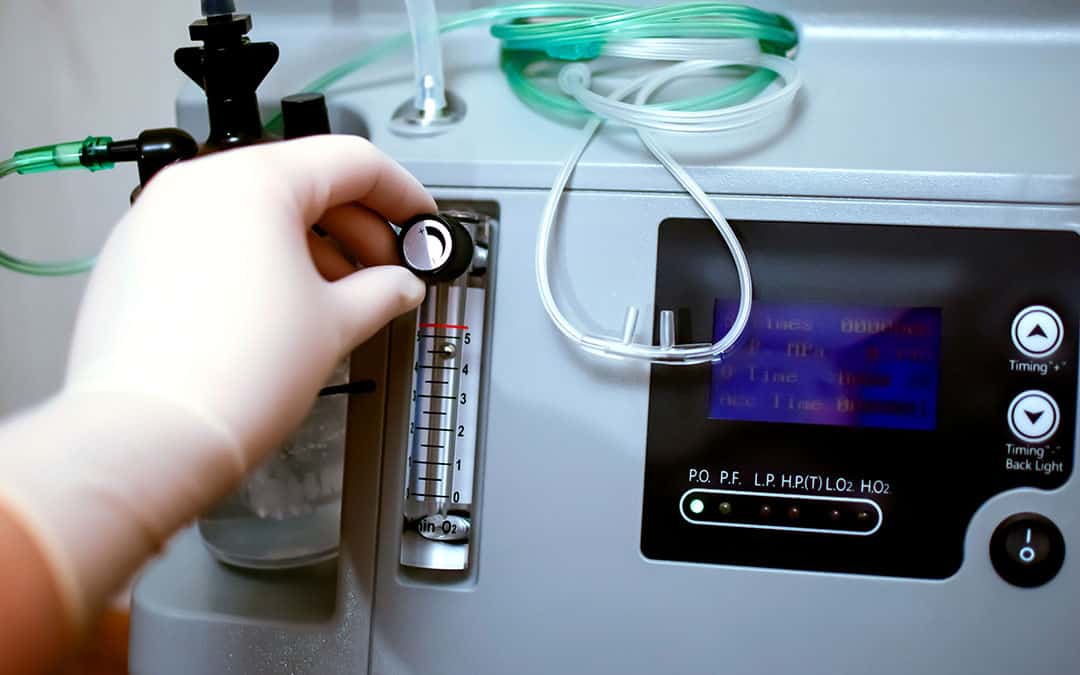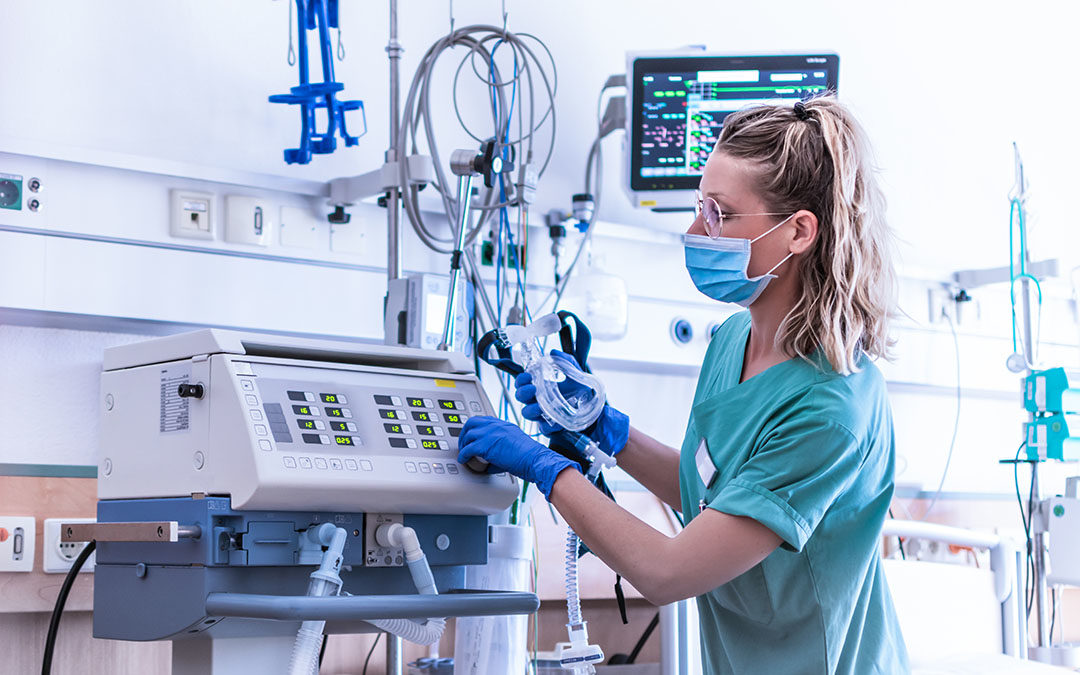Everyone knows that humans need oxygen to live. The human body can only survive a few brief moments when it is deprived of oxygen. However, did you know that too much oxygen can be harmful to you as well? Oxygen toxicity, also known as oxygen poisoning, is lung damage that is caused by breathing in too much extra oxygen.
Oxygen toxicity is a risk for people who are using medical oxygen. The effects are harmful when the patient breathes in too much molecular oxygen at increased partial pressure. It can cause several symptoms, including trouble with breathing and coughing. In severe cases, oxygen toxicity can even lead to death.
Oxygen Toxicity Symptoms and Mechanisms
Oxygen poisoning ironically decreases the lungs’ ability to move oxygen into the blood. This damage can be fatal and seriously affect your body. Several symptoms indicate that you are or that someone you know is going through oxygen toxicity. Be on the lookout for these symptoms to prevent lung damage from oxygen poisoning.
When a person breathes, oxygen is absorbed in the lungs and moved into the bloodstream to be delivered to your organs. When a person experiences oxygen toxicity, they have too much oxygen going into the lungs. The small sacs in the lungs, called alveoli, can fill with fluid or collapse entirely. This limits the lungs’ ability to take in oxygen. If your lungs cannot get oxygen, then none is moved into the blood, and your organs will begin to fail. This is how oxygen poisoning affects you.
You should be on the lookout for several symptoms if you are using medical oxygen. Symptoms such as coughing, trouble with breathing, chest pain and convulsions are significant indicators of oxygen toxicity. However, there are more subtle symptoms like blurred or near-sighted vision, muscle twitching and mild throat irritation. If you begin to experience these symptoms, you should seek medical attention. When using medical oxygen, monitor yourself to be aware of symptoms of oxygen toxicity.
If you are experiencing a mix of these symptoms, visit a doctor to get a proper diagnosis. Diagnosing oxygen toxicity usually involves having blood drawn. The doctor will likely ask you about your medical history and give you a physical examination. It will be different if you are in a hospital on a ventilator. Your blood oxygen level will be monitored with a device that attaches to your finger or toe. Either way, make sure that a medical professional knows if you are having symptoms of oxygen toxicity.
If you are using medical oxygen, you need to be aware of the symptoms of oxygen poisoning. Be sure to keep on the lookout for both evident and subtle signs. If you do begin to experience any symptoms, let a medical professional know as soon as possible.
Is Oxygen Toxic?

Humans need oxygen to remain alive. So, in short, oxygen is not toxic. However, when the lungs get too much oxygen, it becomes unhealthy. Thus, we need the just right amount to stay healthy. If you are using medical oxygen, make sure your oxygen is on the right setting. Oxygen is only toxic when there is too much of it.
Every breath you take delivers oxygen into your lungs. From your lungs, oxygen makes its way into your bloodstream. Your blood delivers that oxygen to all of your organs. That oxygen also mixes with the food you have eaten to create energy. When humans are intaking the correct amount of oxygen, it is healthy.
Oxygen only becomes unhealthy when too much is delivered to the lungs. Then the excess oxygen blocks your body’s ability to bring that oxygen into your blood. This happens when oxygen tanks and ventilators are not on the proper settings.
To prevent oxygen toxicity, make sure your oxygen is on the right setting. Visit your healthcare provider to help you ensure that your oxygen is at the setting that it is supposed to be. In addition, your doctor may monitor you performing certain activities or exercises to ensure that the right amount of oxygen is being supplied by the tank.
Oxygen is a basic human necessity. When you are intaking the correct amount of oxygen, it keeps your organs running and your energy flowing. It becomes toxic only when the lungs start to intake too much oxygen. Visit a doctor if you’re not sure that your oxygen device is on the right setting.
CalOx Inc is a company that distributes medical and food-grade gas to small and medium businesses. If you have questions about oxygen toxicity or medical gases, reach out to CalOx Inc.
